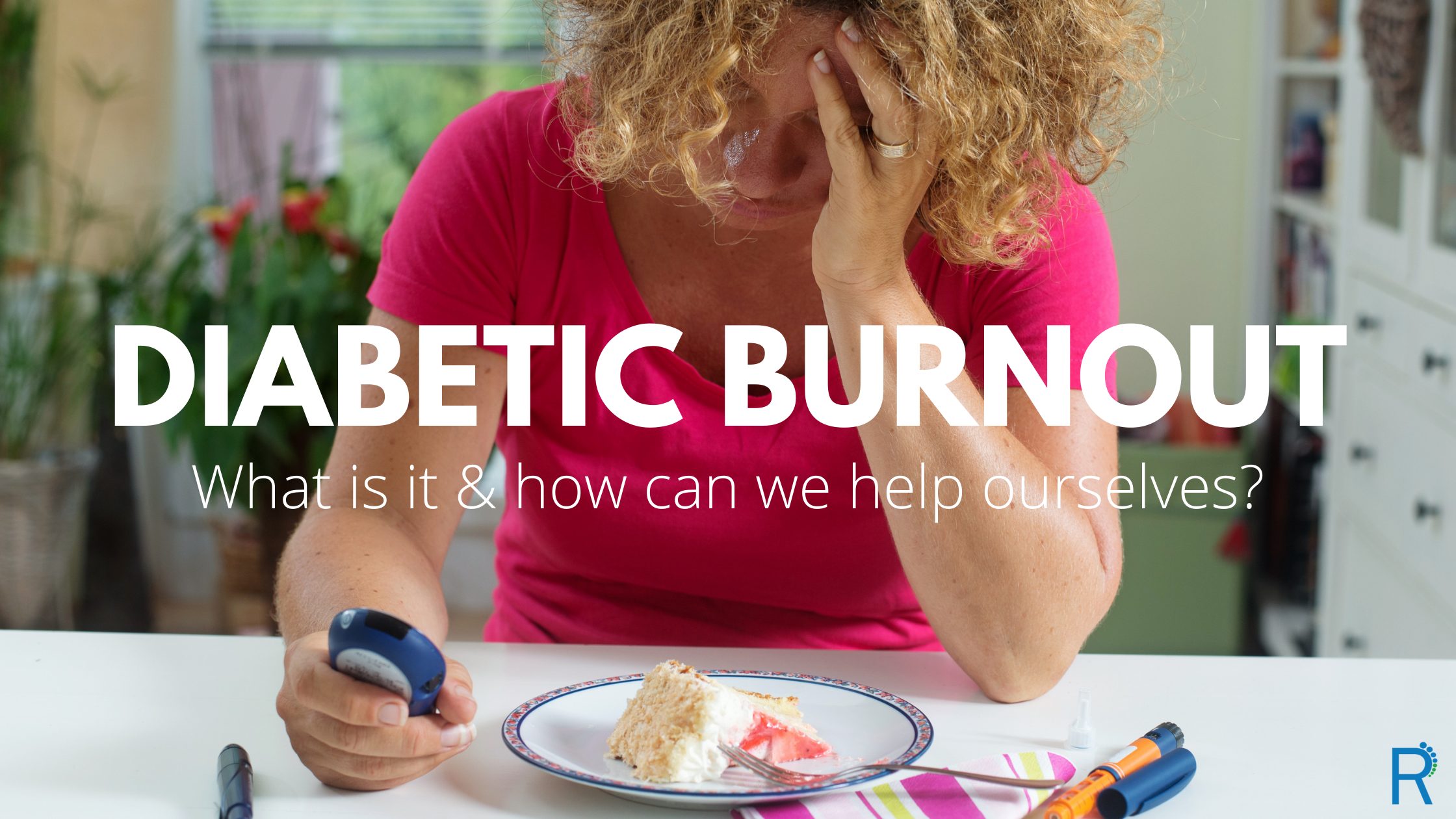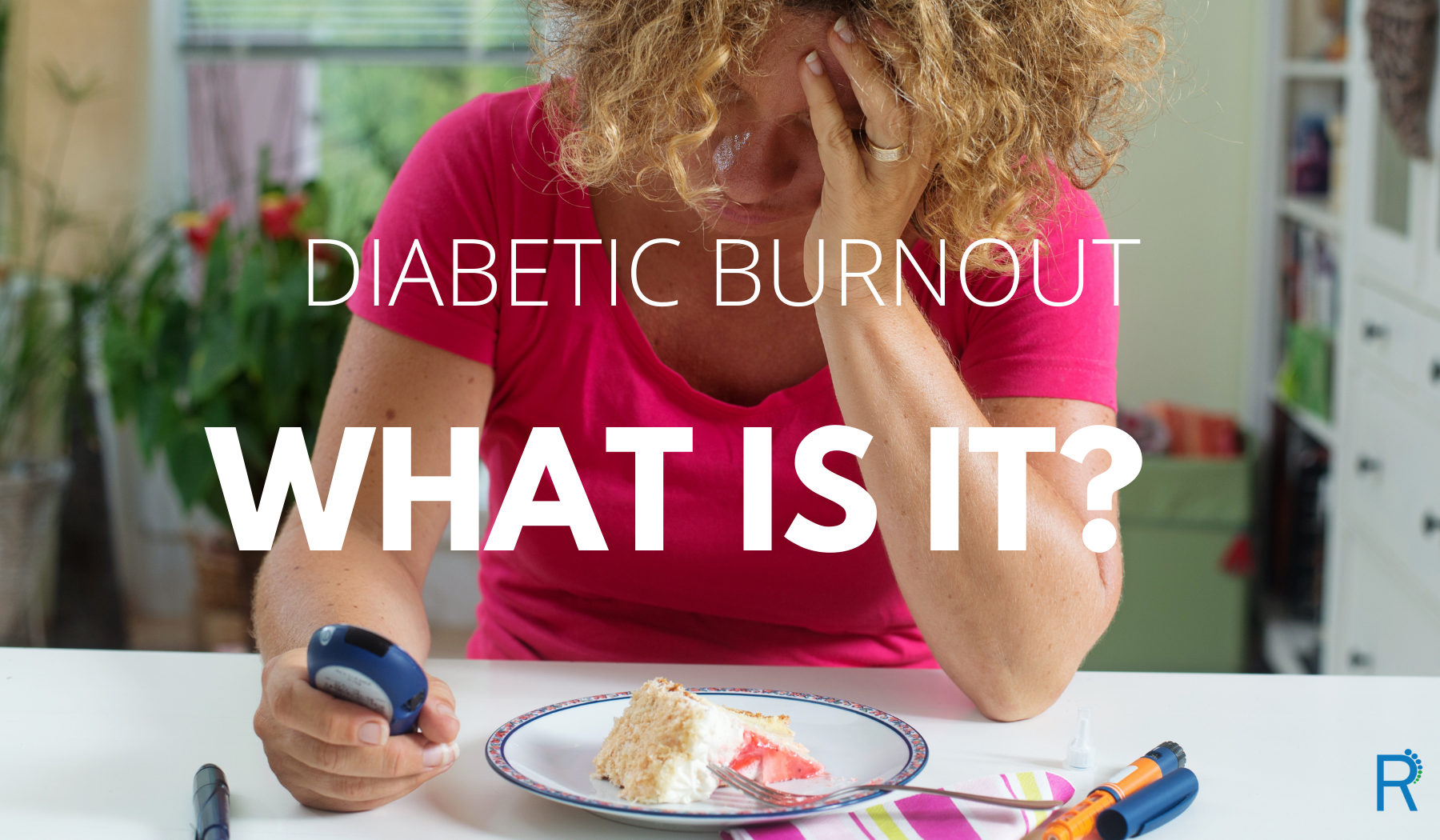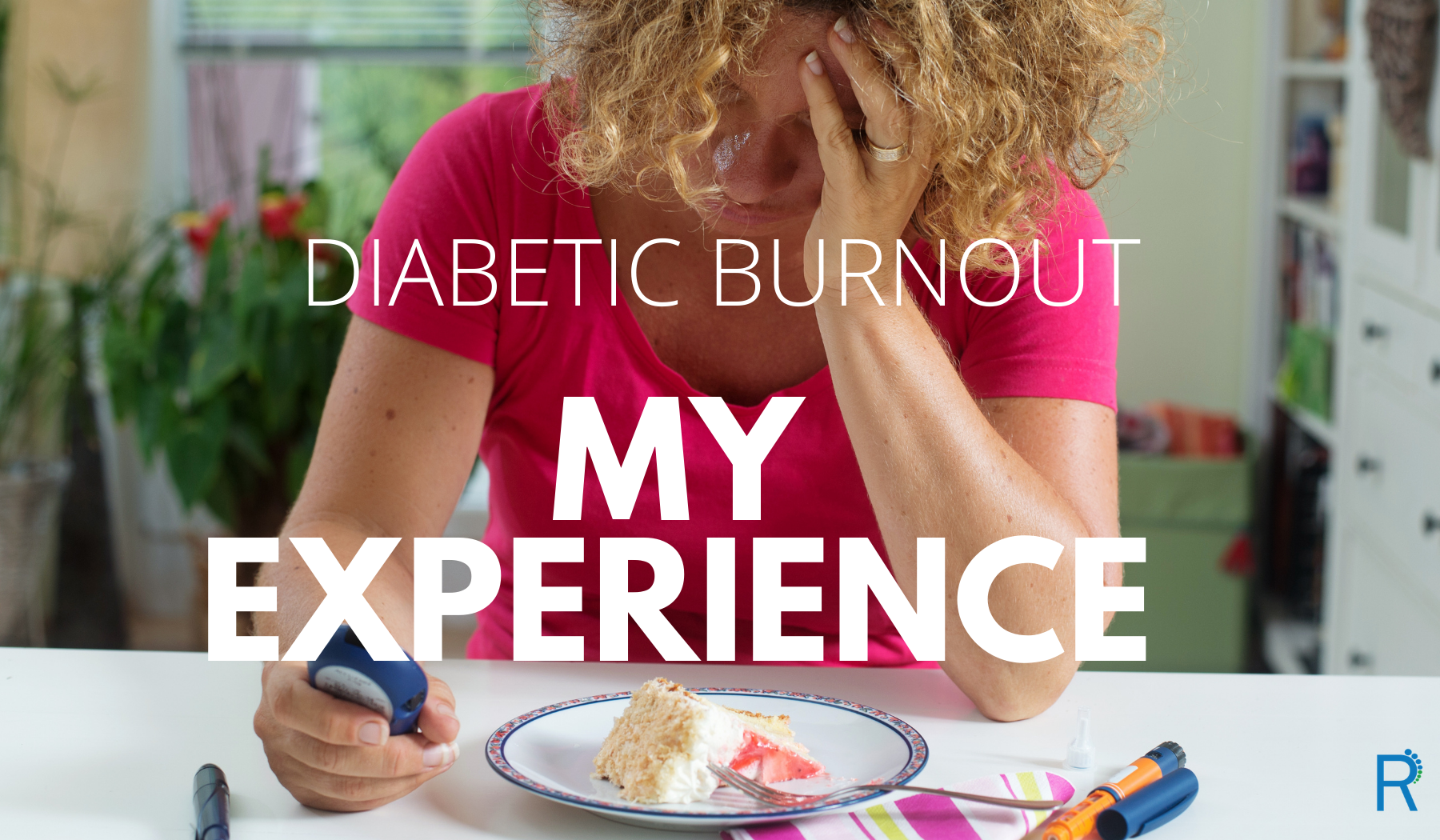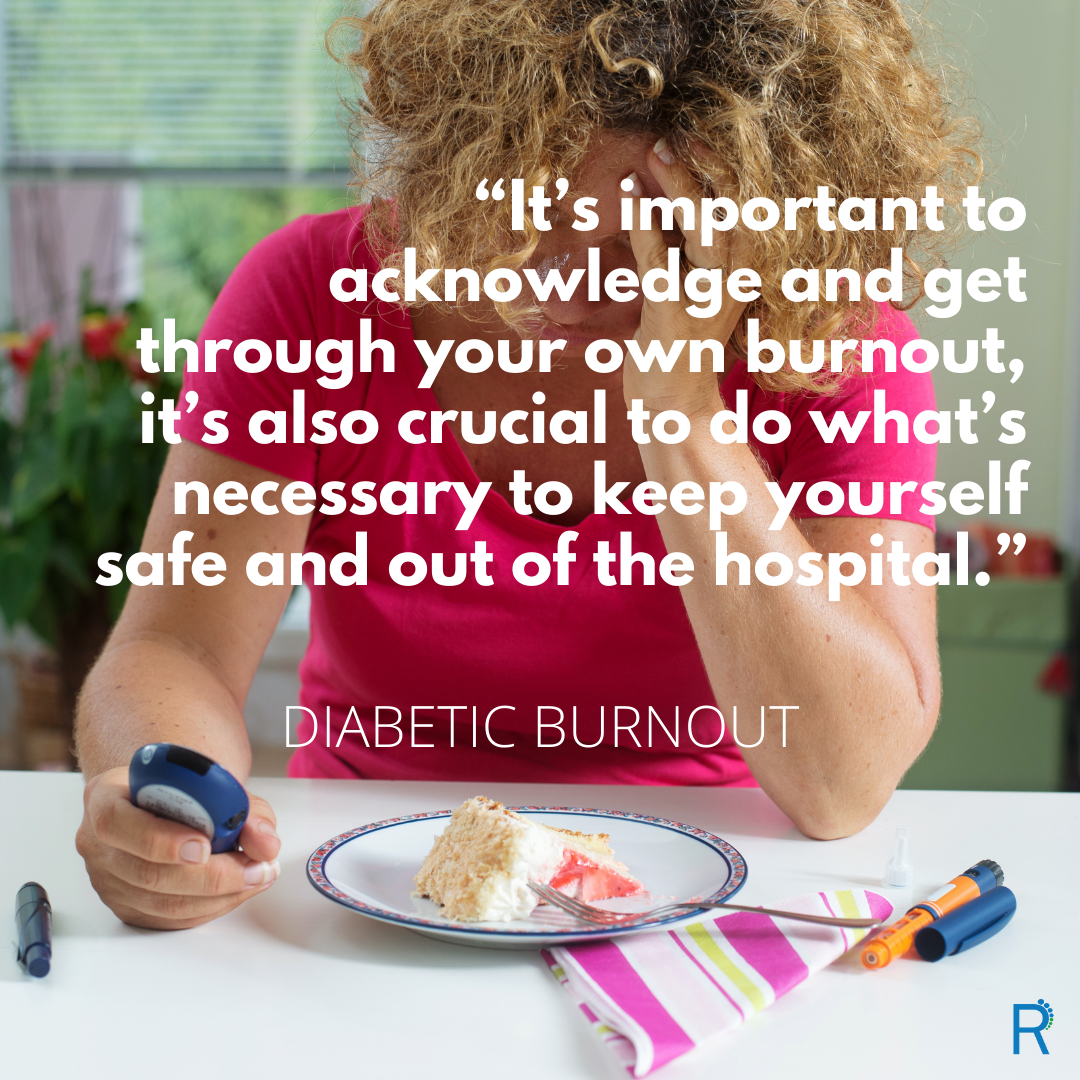Diabetic Burnout: What is it & how can we help ourselves?



Diabetes is a chronic health condition that affects how your body turns food into energy. Most of the food you eat is broken down into sugar and released into your bloodstream. When your blood sugar goes up, it signals your pancreas to release insulin. Insulin acts like a key turning on cells with sugar as fuel (energy). Diabetes affects your body’s ability to produce or use that insulin. Living with diabetes is hard. It’s easy to get discouraged, frustrated, and burned out.1, 2
There are two major types of diabetes:
Type 1, also known as “juvenile” diabetes, where the pancreas produces little or no insulin. In Type 2, often called “adult onset” diabetes, your pancreas produces insulin, but your body does not use it efficiently. That stimulates your pancreas to produce more insulin until it can no longer keep up with demand. Insulin production decreases, which leads to high blood sugar. There is also a third type of diabetes, which can occur during pregnancy, called “gestational” diabetes. During pregnancy, the woman’s blood sugar is high but goes back to normal levels after giving birth.3,4
If you have diabetes, your body either doesn’t make enough insulin, or can’t use the insulin it makes as well as it should. When there isn’t enough insulin, or cells stop responding to insulin, too much sugar stays in your bloodstream. Over time, this can cause serious health problems, such as heart disease, vision loss, and kidney disease.
There is no cure yet for diabetes, but losing weight, eating healthy food, taking your prescribed diabetic medications, and being active can improve your day-to-day life. Do diabetics get tired of controlling their disease? Of course! Remember, this is a chronic disease, and diabetic management will be required throughout the person’s life.

What happens when you get diabetes burnout? What causes the burnouts? There are many triggers, and it depends on the individual.
Burnout is not uncommon among diabetics. According to the literature, it most often happens during the teenage years, in their 20’s or 30’s when they are starting their family, or when they are started on insulin therapy.4,5 Many people feel exhausted, ashamed, overwhelmed with their daily management or they may feel frustrated when they are trying so hard to decrease their weight and control their diet yet their Hemoglobin AIC (blood test that measures average blood sugar levels over the past 3 months) is still high. Burnout can last a few days to years.

I personally have experienced burnout several times since I was diagnosed with type 2 diabetes 10 years ago. On one occasion, I thought I was doing a great job managing my blood sugar, yet my AIC was still higher than 7. I stopped doing my finger sticks because I felt that knowing my blood sugar did not help. All it did was cause me pain even though the needles were small. For a while, I could not get myself to prick my finger; my palms started sweating and I could not push the button to release the needle. I was frustrated and a bit depressed. I had to tell myself that “it is okay. I am doing all that I can.”
My husband, who is also a diabetic, has also experienced diabetic burnout many times. He said he tries to remember to tell himself that it is okay to feel frustrated and get off his diet once in a while, but he has to pick himself up and get back into effectively managing his diabetes. If his blood sugar is continuously elevated, it may cause hardening and narrowing of his blood vessels. If he has a wound, this narrowing will greatly impede the amount of blood and oxygen going to the affected area; thus, the wound heals slowly.5

It’s important to acknowledge and get through your own burnout, it’s also crucial to do what’s necessary to keep yourself safe and out of the hospital.4 Talk to your diabetic educator, try a new relaxation technique, take a short vacation from your usual meal plans, and do not deprive yourself too much. Remember, diabetics can eat everything, but in moderation. Severely high blood sugar levels and long-term burnout that leads to long-term high blood sugars can increase your risk for many of the diabetes complications you’ve been warned about, such as neuropathy, retinopathy, nephropathy, and slow wound healing. Bottom line, diabetes is a chronic and demanding disease. Diabetic burnout will occur. Give yourself permission to change your routine slightly now and then to break up the monotony of your diabetic management and avoid the burnout from occurring. Be sure to always speak to your managing physician about ways to avoid and how to deal with burnout. The American Diabetes Association also offers a hotline that can help connect your with the appropriate resources near you. Visit diabetes.org or call 1-800-DIABETES (800-342-2383).

This blog post was written by Josephine F. Schantz, MSN, RN, NPD-BC, WCC – EO2 Clinical Specialist
What is MSN, RN, NPD-BC, WCC? MSN is a Masters of Science in Nursing, while WCC refers to a Wound Care-Certified Nurse.
References:
- https://www.cdc.gov/diabetes/basics/type2.html
- https://www.cdc.gov/diabetes/basics/diabetes.html
- https://www.endocrineweb.com/conditions/type-1-diabetes/how-beat-diabetes-burnout
- What Is Diabetes Burnout? Symptoms and How to Cope (healthination.com)
- https://www.woundcarecenters.org/article/living-with-wounds/how-diabetes-affects-wound-healing
